00.00
It starts, as so much in the administration did, with Peter Lawford. On May 19, 1962 at Madison Square Garden: a Democratic fundraiser and birthday celebration for President Kennedy.
Lawford introduces the next guest as a woman "both pulchritudinous and punctual." It's an inside joke, shared by Hollywood and Washington: Marilyn Monroe was always late. Late on the set, late to the party, her lateness caused by a toxic brew of depression, anxiety, drugs and alcohol. It doesn't seem like something to laugh about, really, but it was a mean era, and Peter Lawford embodied it well. The B-list-actor, fifth member of the Rat Pack, was married to the president's sister; Brother-in-Lawford, Sinatra called him. Famous for his connections and his louche parties more than his work, Lawford hosted the Kennedys in Los Angeles, threw the parties where they unwound, provided women for them to sleep with.
Hobnobbing in Hollywood was one of the things that made the old guard see the Kennedys as disreputable and boorish. But after the 70-something Eisenhower, the nation was tired of being run by boring old men. Kennedy's opponent Richard Nixon came across on TV as not only boring but grumpy. And in 1960, for the first time, television was where you won or lost.
00:21
The spotlight shines on the entrance, and Lawford mugs for the camera, pretending to be surprised that Marilyn is not there. Monroe is the climax of a line-up that has included Peggy Lee, Diahann Carroll, Jimmy Durante, Shirley MacLaine, Maria Callas, Harry Belafonte, Jack Benny, and Ella Fitzgerald. The Kennedy White House was welcoming to black entertainers. Black activists, not so much. In the sixties the submerged tensions of the fifties bubbled to the surface, and racists and antiracists were literally at war with each other. Martin Luther King declared that Jack Kennedy lacked "moral passion" when it came to civil rights. Kennedy claimed he couldn't take a strong stance because the right would use it against him. And they would. That tired old tune--stand up for black Americans and you're too liberal for America-- still plays like a broken record on our national airwaves. But JFK's hand would be forced by the unhinged violence of Southern racists: Emmett Till beaten to death, schoolgirls killed by bombs in Birmingham, Martin Luther King thrown in jail, a black student at the University of Mississippi attacked by a racist mob while the governor stood by. Eventually public outrage would force Kennedy to demand a comprehensive civil rights bill. It would be working its way through Congress when he was killed.
01:01
Peter Lawford is fake-ad-libbing when Marilyn appears behind him. She climbs onto the stage and trots toward the podium as the crowd cheers. Her dress is flesh-colored, with no underlining, and set with 2500 rhinestones. It had to be sewn onto her, and it's so sheer and thin and tight she looks naked. She has to run with tiny, mincing steps. As she reaches Lawford, she readjusts her white ermine coat, opening it to flash the audience her upper half, then immediately wrapping it coyly around herself.
Something about this gesture, so apparently spontaneous yet so obviously deliberate, feels to me like a metaphor for the era. The Cold War was a time of faked reveals, of sneaked looks. Of surveillance photos, spies, counterspies, double agents. Of superpowers trying to hide their arsenals but trying to let everyone know just how huge they were too: is that a missile in your jungle or are you just happy to see me? There was a childish machismo to the Cold War that gets parodied in films like Dr. Strangelove. You can hear the same puerile tone in some of Kennedy's statements. "Foreign affairs are the only important issue for a president to handle," he told Nixon after the failed Bay of Pigs invasion. "I mean, who gives a shit if the minimum wage is $1.15 or $1.25, in comparison to something like this?"
01:10
Peter Lawford puts a proprietary arm around Marilyn. "Mr. President," he says, "the LATE Marilyn Monroe." With hindsight, the joke is chilling. Marilyn is only three months away from being found face down on her bed, overdosed, in actuality the late Marilyn Monroe. Her career and her life are in freefall. Addicted to uppers, downers, booze, and unavailable, powerful men, she is a study in self-destruction.
Jack Kennedy, on the other hand, is on the way up. He has survived his rookie missteps. Early on in his term, hawks among his security advisors convinced him to support the doomed assault on the Bay of Pigs by a group of Cuban exiles. He will not be so quick to take their advice again. His first meeting with Nikita Khrushchev was disastrous but he learned from that too. An intelligent man, he will channel his need to compensate for these early screw-ups into a controlled forcefulness that will drive his biggest success: averting nuclear war by resisting the Joint Chiefs' desire for an invasion during the Cuban Missile Crisis.
He will resist the hawks' urgings on Vietnam as well, refusing the Pentagon's request to send 200,000 troops there, but he will approve counterinsurgency tactics, napalm, and Agent Orange. The conflict will be rapidly spinning out of control in the fall of 1963. That November, he will ask an aide to produce a report on every option in Vietnam, "including how to get out of there." He wants the rethink the whole situation "from the bottom to the top." The next day, he will depart for Dallas.
01:18
Peter Lawford takes the ermine coat as Marilyn slips out of it. A roar arises from the crowd, something at once lustful and mocking. It's not a nice roar. It's not friendly. There are catcalls and laughter. Marilyn is venerated as the ultimate sex symbol, but she, like sex, was often made into a joke.
01:26
Marilyn taps the mike then puts her hands over her eyes to peer into the crowd. She is clearly drunk, high, or both. Can she see anything? If she can, she sees Jack, sitting between the co-hosts, a movie executive and a political advisor. She does not see Jackie. Jackie did not come.
History likes to juxtapose Jackie and Marilyn as opposing poles of femininity but the difference between them is stylistic, not substantive. They are both deft performers of self-crafted personas: Jackie the ultimate elegant wife, Marilyn the ultimate sex goddess. These personas aren't two opposing poles of femininity; they're two versions of the same thing: the woman as the answer to male needs. Marilyn's childlike, breathy voice is considered her trademark. But in the recording of the televised tour of the White House that aired just a month before this birthday party, Jackie's voice has the same quality.
01:45
Marilyn begins to sing "Happy birthday." The crowd does not quiet down for her. The catcalls and laughter grow louder at the end of each line. Her delivery is openly suggestive.
It's hard today to fathom the effect this erotic performance had on the 1962 audience. But it played on family television, because it was also just Marilyn being Marilyn. She was the embodiment of a fifties ideal of femininity: childlike but voluptuous, vulnerable but a bombshell. Just as Jack Kennedy was the embodiment of fifties masculinity: opinionated, confident, virile, a tad brutish even. If they hadn't gotten into bed together, pop culture would have had to put them there.
02:11
At the end of the song, Marilyn turns so the lights fall on her in profile. The crowd's roar grows almost hysterical. She segues into a version of "Thanks for the Memory" with altered lyrics:
Thanks, Mr President
For all the things you've done
The battles that you've won
The way you deal with U.S. Steel
And our problems by the ton . . .
She is referencing JFK's recent success forcing U.S. Steel, through a combination of publicity and government harassment, to rescind price hikes that would have raised the costs of housing, cars, and appliances for consumers. He did it because his administration had helped the company negotiate a labor deal, and he felt they were double crossing him. "They fucked us," he told his Secretary of Labor, "and we've got to try to fuck them."
02:38
Marilyn waves her arms in a seemingly spontaneous gesture and cries "Everybody, Happy Birthday!" She leads the crowd in the song, conducting, then jumping up and down. Like so much about Marilyn, it looks spontaneous and unrehearsed when it's not.
02:47
A cake is paraded out, followed by a gaggle of suited men. One appears to be a police officer. The cake, in other words, has about as much security as JFK will have a year and a half later when he rides in his open convertible in Dallas.
The only thing everyone can agree on about the Kennedy assassination is that it was a massive failure of the president's security apparatus. And the investigation afterward was botched. The apparent facts--that the president of the U.S. was murdered by a madman Jackie described as "a silly little communist"--was and is so unsatisfying that it launched scores of conspiracy theories, all based on the believer's world view. The Soviets blamed fascists and "monopolists." The Cubans blamed anti-Fidel reactionaries. North Korean communists blamed "financiers;" Africans blamed racists; Arabs blamed Zionists; Christians blamed sinfulness. Donald Trump blamed Ted Cruz's dad.
The assassination provided fodder for the nation's nuts, but it unsettled everyone. It made it seem like America was going mad. At the same time, it secured the storybook status of the Kennedy administration.
02:55
The cake nears the president. It's a prop cake. The real cake has a top layer shaped like the White House. A perfect metaphor for the presidency that was plotted and weighed and baked up like a confection to be spoon fed to his son by the nefarious puppet-master, Joseph Kennedy.
03:07
The camera fades from the cake to President Kennedy mounting the stairs to the stage. As Andrew Sarris wrote in the Village Voice "JFK mounted the stage in that endearing shambling movement which cancels out the chilling self-confidence of the intelligent politician."
JFK waves for at least ten seconds, turning to acknowledge all sections of the arena: the people behind him, to his right, to his left. He is at the center, and comfortable.
03:42
Jack Kennedy declares, "I can now retire from politics after having had Happy Birthday sung to me in such a sweet wholesome way." It's a classic Kennedyism. It comments on the raciness--perhaps even brags about it--without saying so explicitly. It's what makes Jack such a charismatic man and such a problematic politician. It's like the "gentleman's agreement" by which no one in the administration or the press talks about the family's open secrets: Jack's afternoon nude swims with his female employees, Jackie's smoking, everyone's drinking and pill popping, Bobbie's affairs, Jack's affairs. All of these omissions are meant to protect the image of a perfect first family headed by a man with a moral compass. But when that image is shattered, as it inevitably will be, something will be lost to the nation. Never again will Americans be able to believe fully in even such an appealing appearance of wholesomeness.
And once people can't believe in decency, they find it easier to accept its outright opposite.
* The video I am citing is here:


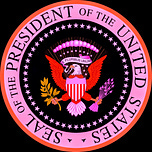

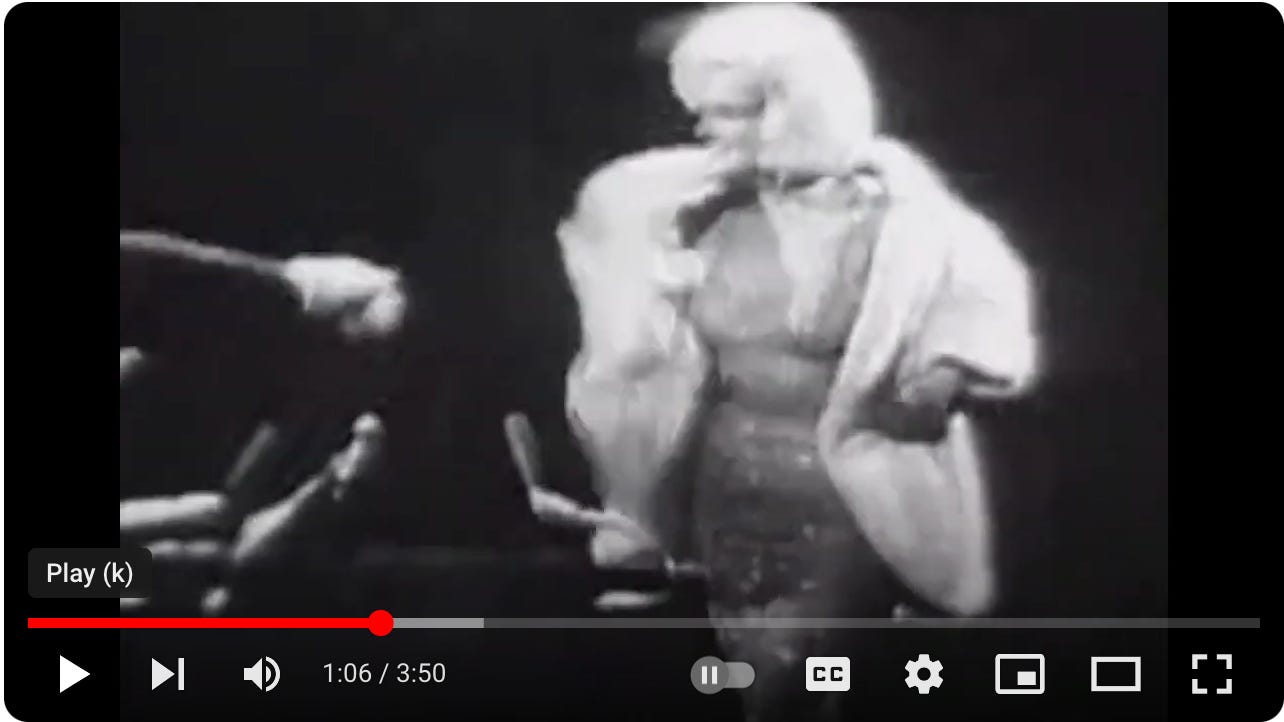
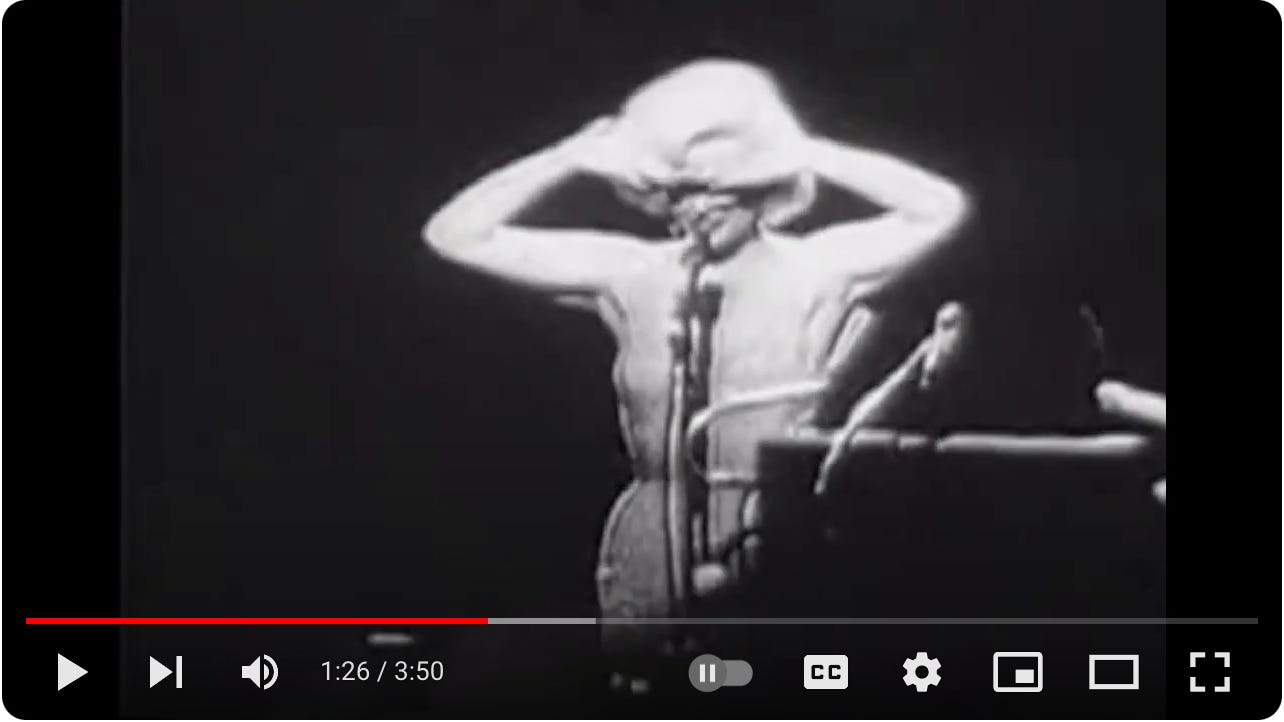
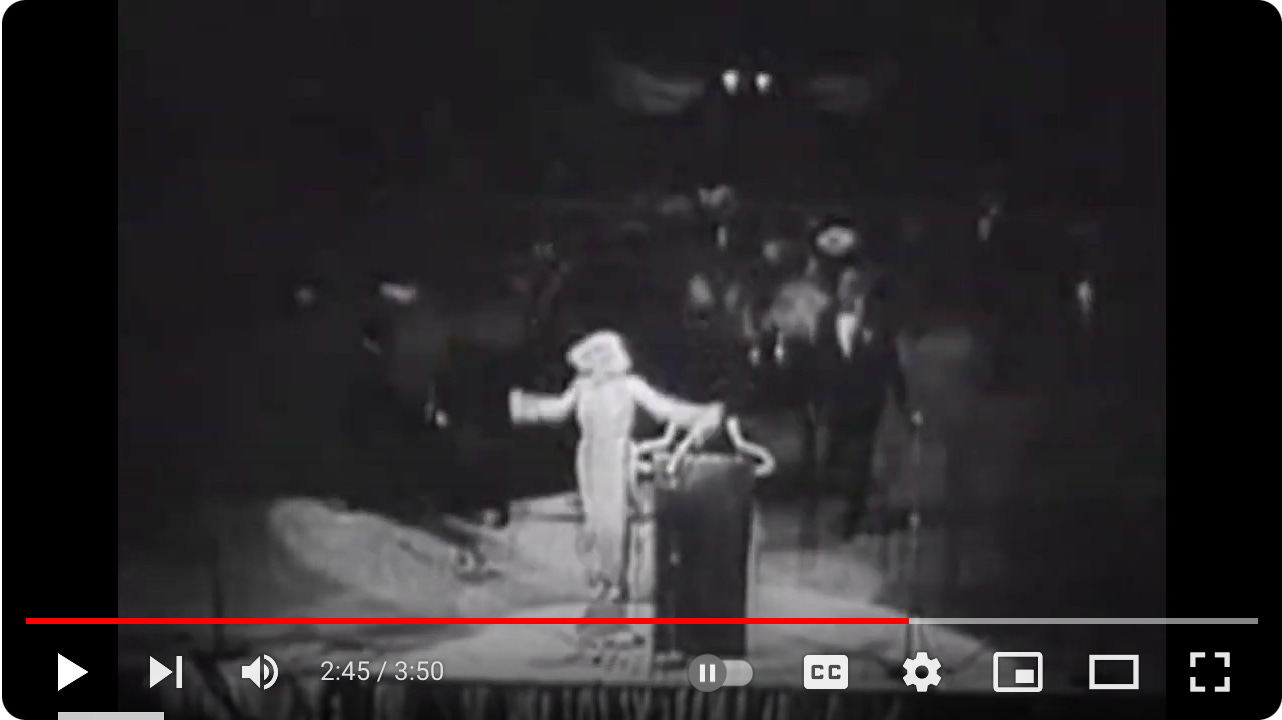
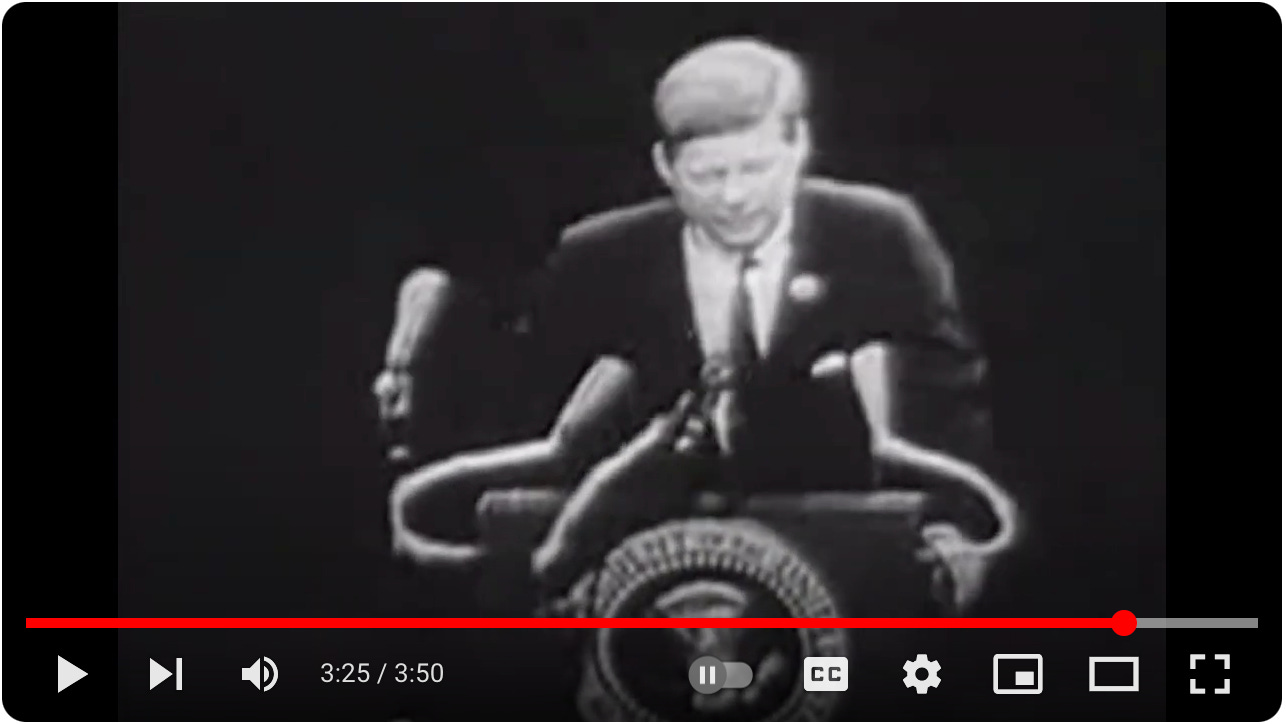

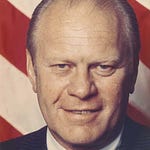


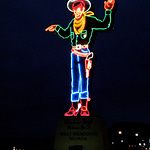
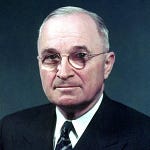
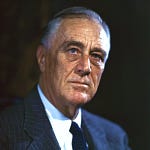
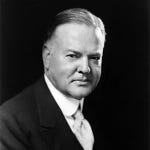
35: John Fitzgerald Kennedy